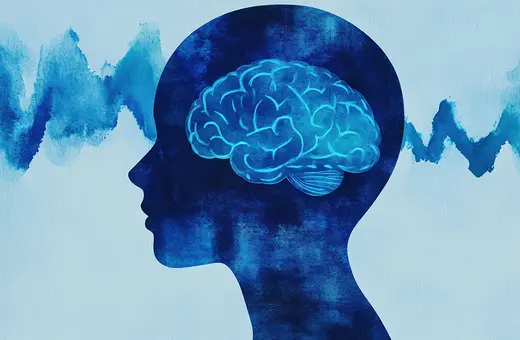‘The German Ideology’ is a retrieved set of manuscripts by Karl Marx and Friedrich Engels published some 87 years after they were originally written. Some scholars argue the collection of manuscripts should not be considered a real text at all. Others, like Tom Whyman, argue the work provides the core of Marx’s thought and the primary ideas that have relevance to all of us.
If philosophy is important – if anyone in human history has ever been an ‘important’ philosopher – then Karl Marx is. The nature of philosophical thought and writing, insulated from practice in the curious way that it is, is such that philosophers must typically be anxious about the ‘real-world’ impact of their work: is there actually any point to this at all? But Marx’s ideas both have driven, and continue to drive, actual events of seismic importance to actual global human history – and in a much more direct way than those of, say, Plato or Descartes.
As Marx famously wrote in his ‘Theses on Feuerbach’: “The philosophers have only interpreted the world, in various ways. The point is to change it.” If this is to be the measure (and leaving aside the question, which anyone on the right would ask at this point, as to whether this change must actually be good), then Marx’s philosophical career must be accounted a monumental success.
But Marx was not just a philosopher; he was also a political activist, a polemical journalist, and an economist. Trained as a philosopher, with a PhD on Ancient Atomism, most of Marx’s important specifically philosophical work was written in the 1840s, when he was still a young man, often left unfinished, and never published in his lifetime. The ideas developed in this work – the Paris Manuscripts, The German Ideology – filtered through Marx’s later writings. But the writings themselves only became generally available in the 1930s, when editions were produced by a team of editors working in the Soviet Union: in short, Marx’s philosophical writings only became widely available after his ideas had already changed the world.
Marx’s philosophy thus presents scholars with a wealth of interpretative problems. Obviously, a certain sort of historian of philosophy loves a good textual controversy – and The German Ideology, Marx’s most extensive and best-developed specifically philosophical texts, is notable for presenting a whole wealth of them. The most famous chapter of the work is supposed to focus on Ludwig Feuerbach, the post-Hegelian humanist materialist who was the most formative philosophical influence on the young Marx (it can be hard to understand Marx’s early writings without a prior orientation in Feuerbach’s vocabulary – even if it is not always clear whether or not Marx is using Feuerbach’s words in the same way). But the chapter, as we have it, barely mentions Feuerbach by name at all, and instead seems to have been constructed from other notes to fill a presumed gap by The German Ideology’s 1930s editor, David Riazanov.
___
If The German Ideology really ‘doesn’t exist’, as some scholars now like to claim, then it is one of the most exciting and important philosophical texts ever to not be written.
___





















Join the conversation